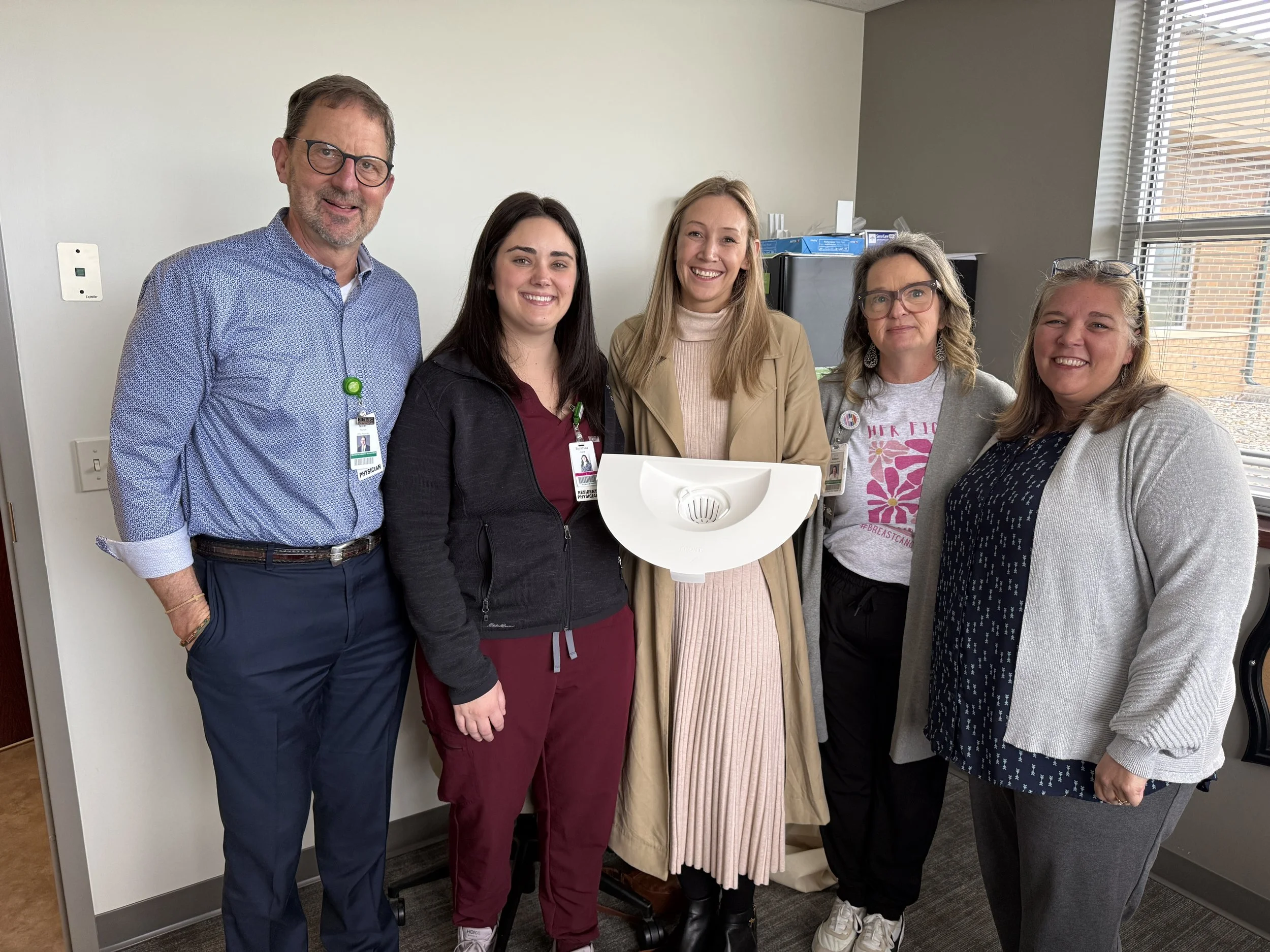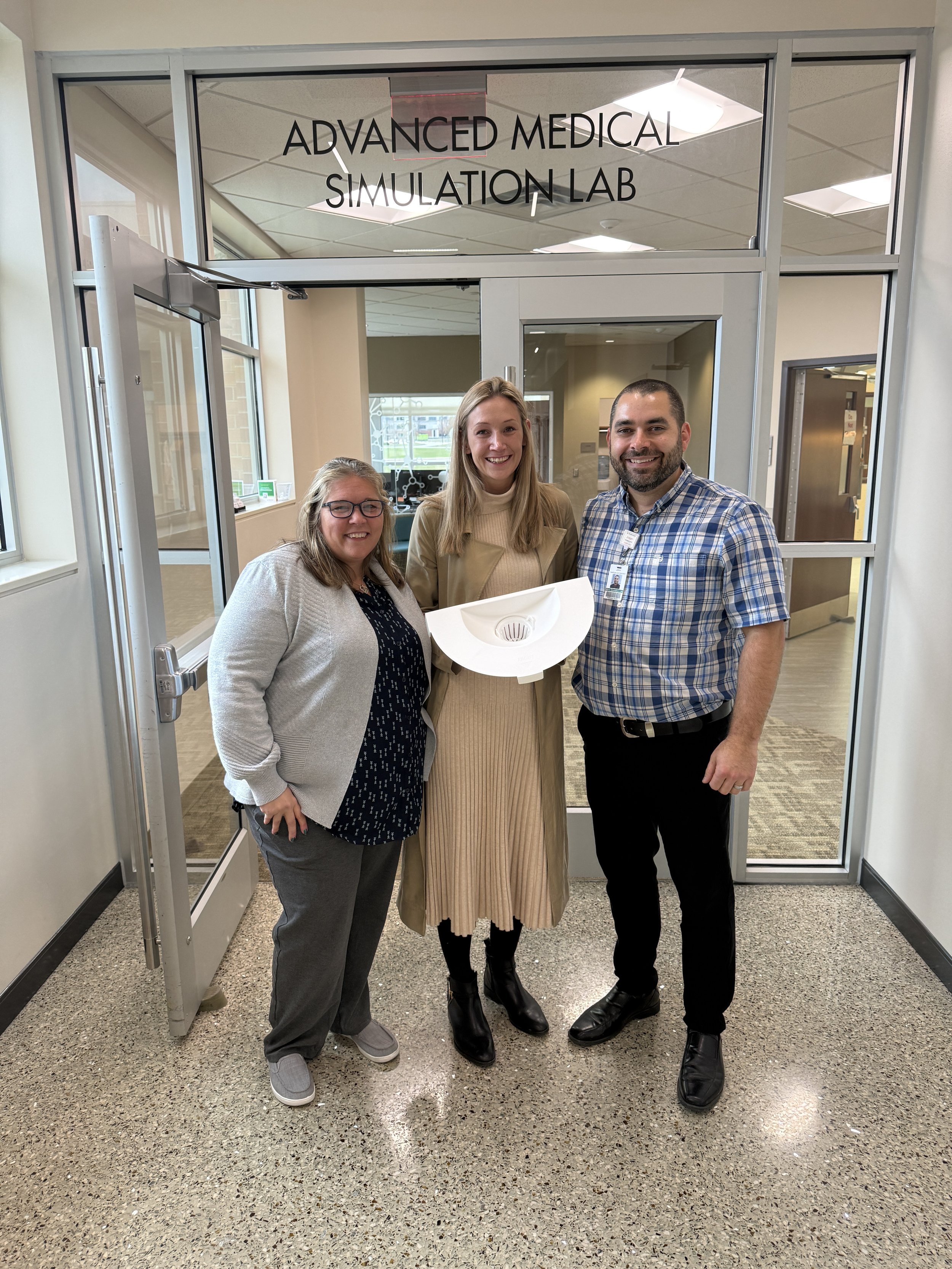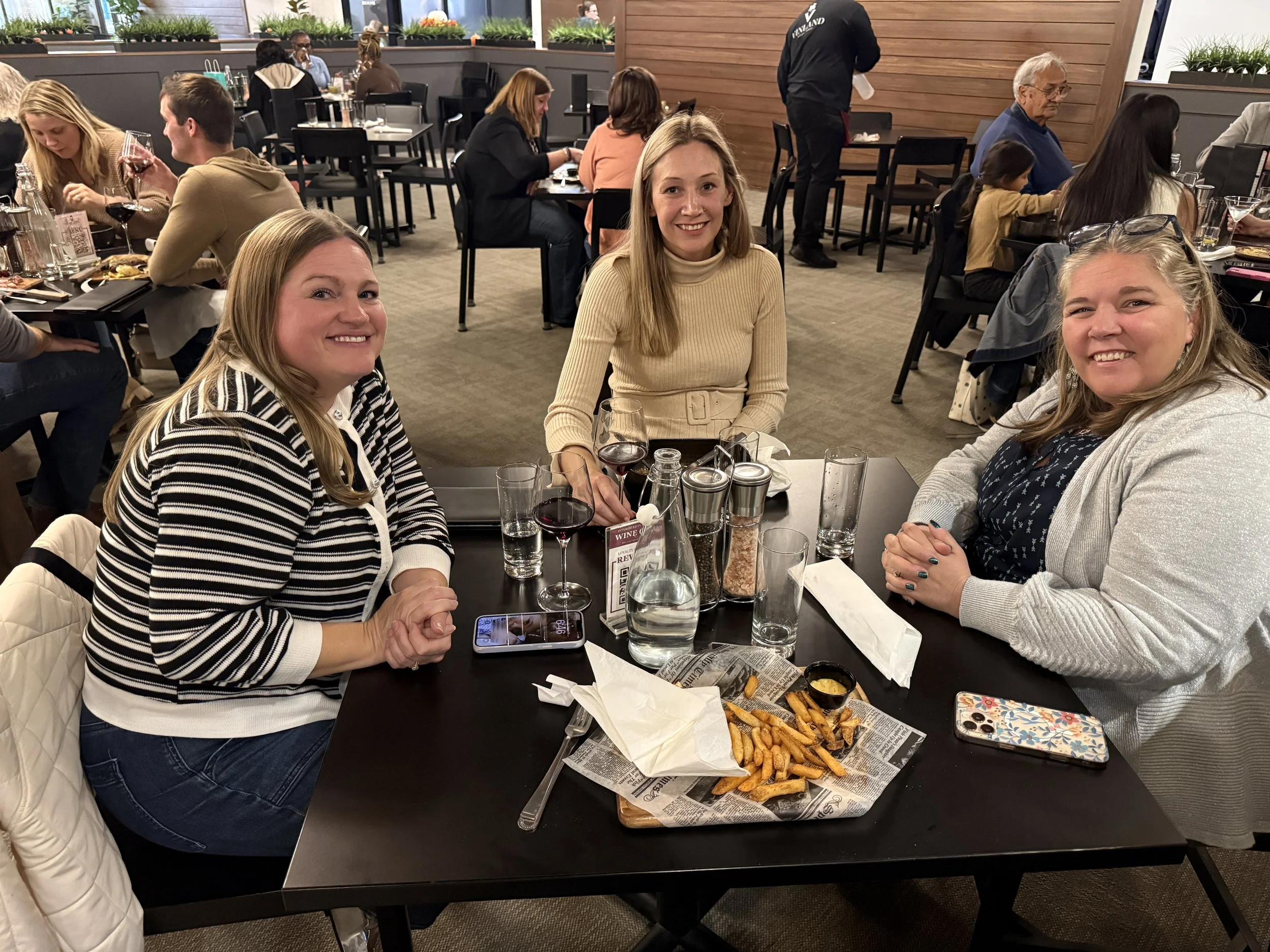Bringing Dignity to Miscarriage: The Story of the Miscarriage Collection Cradle
“It was a great day for women.”
Laura Corcoran, creator of the Miscarriage Collection Cradle, and Kristen Riecke, the author of No Matter How Small: Understanding Miscarriage and Stillbirth
That’s how I’ve been describing the day we spent with Laura Corcoran, the creator of the Miscarriage Collection Cradle.
For anyone familiar with my feminist tendencies, you’ll fully understand my heart behind that statement.
One in four pregnancies ends in loss—most through early miscarriage. And for many women, the physical experience of that loss happens at home, alone.
They are told to “manage at home.”
Too often, they find themselves holding their baby’s remains in their hands, unsure what to do. Others watch helplessly as an automatic toilet flush takes their child from them forever.
Laura experienced miscarriage herself in her home in the U.K.
Kristen and I lived our own miscarriage story nearly 25 years ago. That grief became the soil from which books, support groups, and a hospital bereavement program grew.
But Laura’s grief led her somewhere else: to fix an age-old problem that shouldn’t exist anymore.
As an engineer, Laura refused to accept that the only option was to fish your dead baby out of the toilet with a kitchen sieve.
In defiance, she created the Miscarriage Collection Cradle, a dignified way for women to collect and preserve their baby’s remains—for burial, for genetic testing, or simply for peace.
Her cradle is now an approved medical device used in 15 hospitals across the United Kingdom.
And last week, she brought it to Indiana.
Kristen and I had the privilege of hosting her as she met with local physicians, midwives, nurses, doulas, and people who care deeply about women’s health. She demonstrated the cradle to Dr. Geoff Gordon, Dr. Tom Miller, Kathy Detweiler, Mindy Leatherman, Erin Ross, and so many others who leaned in to learn and to listen.
One of the most moving parts of the day came when we introduced Laura to our friend, John Lozo. John runs the Forever In Your Heart program, using 3D scanning to capture the hands and feet of loved ones—minutes before or after death.
He then uses a 3D printer to create keepsakes: tiny baby footprints, fingerprints pressed into silver necklaces, statues of a grandparent’s hand—ready to be held by loved ones.
Laura builds devices that protect dignity at the beginning of death. John preserves the memory of the ones we loved. Two people, on different continents, both using their hands and their heartbreak to serve the grieving.
I don’t have their engineering or technological skills. But watching them meet was one of the most hopeful moments I’ve experienced in a long time.
Another beautiful part of this story is how it all began: on LinkedIn. The algorithm paired them together--the author of No Matter How Small and the engineer of a product collecting tiny people.
A good day for women and those who love them
To conclude the day, Kristen's sister, who desperately wishes she would have had a Miscarriage Collection Cradle in the past, drove for four hours to have dinner with Laura, Kristen, and (to a lesser extent) me.
Their embrace brought tears to our eyes--One of the millions of women in history who needed support during miscarriage and the one woman in history to develop a device to bring dignity to miscarried remains and the woman who carry them.
Our world seems so dark at times, and I can lose hope.
Yesterday. Yesterday was not one of those days.
For more on miscarriage and stillbirth, visit KristenRiecke.com for the internet’s most exhaustive list of resources on this topic.




